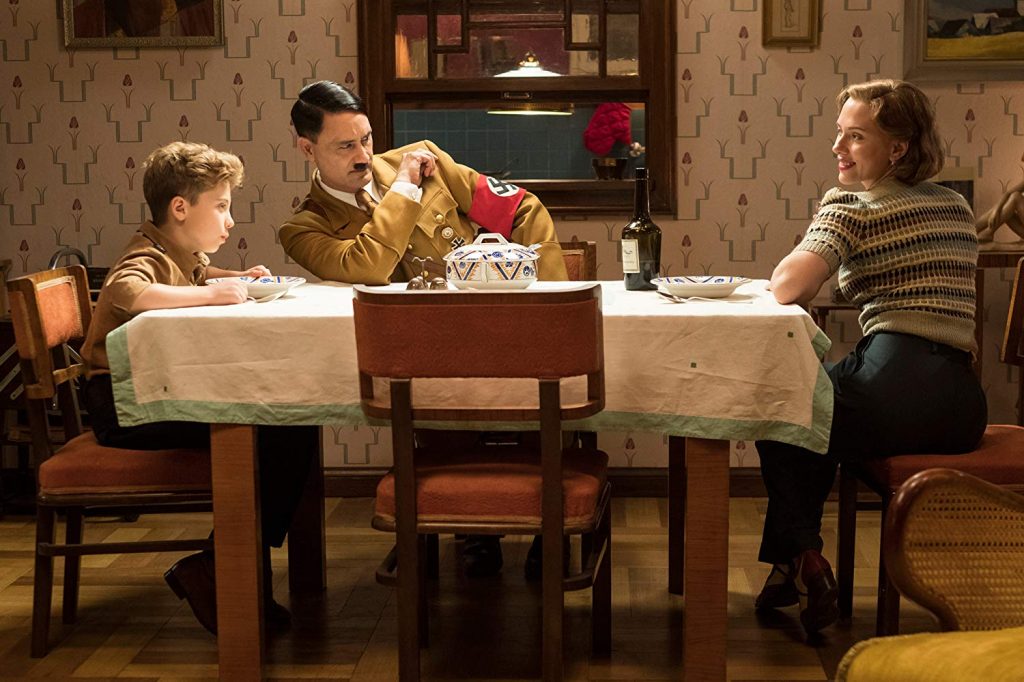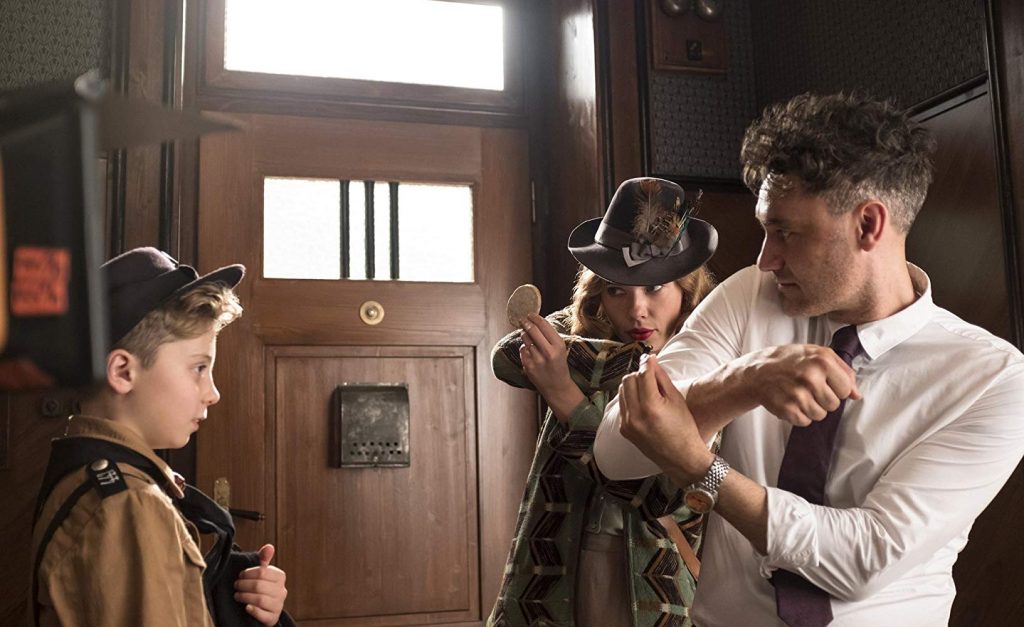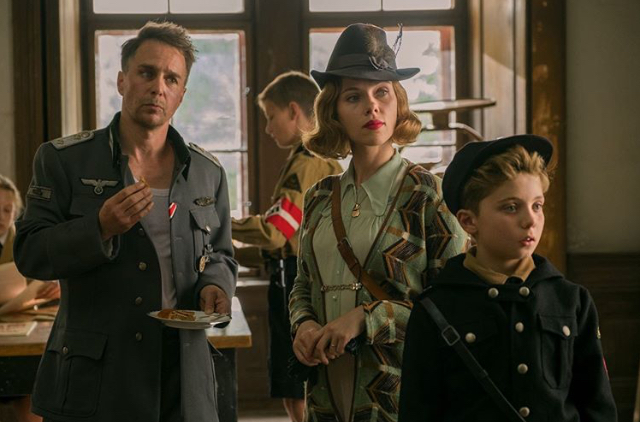As far as Nazi spoofs go, audiences have never seen one quite like Jojo Rabbit.

This dark parody uses humor to battle and poke fun at the ignorance that comes along with blanket hate in the forms of anti-Semitism and xenophobia. Yet, it has a brilliantly balanced ratio between cathartic comedy and dark drama—a balancing act that is not easy to pull off, especially considering the subject matter.
Jojo Rabbit is a coming-of-age satire that follows 10-year-old Jojo (Roman Griffin Davis), who has been indoctrinated into becoming a fascist Nazi at the height of WWII in Germany. However, his mom (Scarlett Johansson)—who isn’t completely brainwashed by the Nazi regime and full of heart—is constantly reminding him to choose love instead of hate.
On the other hand, Jojo has a charismatic imaginary friend that’s … wait for it … a caricature of Hitler (played by an audacious Taika Waititi). Jojo’s imaginary friend is also representative of the child’s undeveloped mind and his belief system. This symbolism is an extremely inventive way of portraying young Jojo’s internal battle and evolution between being a fascist and a decent human being, especially as unforeseen drama that ensues unravels.
Jojo becomes torn about his views when he discovers that his mother has been hiding a young Jewish girl (Thomasin McKenzie) in their home. This is one of Jojo’s relationships that, as it evolves, breathes more life to the film.
Writer/director Waititi was clever enough to follow up Christine Leunens’ book, Caging Skies, by making a parody that tells a tale of a German child who has been indoctrinated to hate. Only the filmmaker knew that he didn’t want to tell a traditional dramatic story from the start, arguing that “we (as a society) have become used to that style of drama.”
“I knew I didn’t want to make a straight-out drama about hatred and prejudice because we’ve become so used to that style of drama,” the Thor: Ragnarok director explained at a post-screening even on the Fox lot that The Movie Mensch attended.
“When something seems a little too easy, I like to bring in chaos,” the New Zealand born filmmaker added.
Oh, and Chaos he brought! That chaos may just earn him an Oscar.

But the thing about JoJo Rabbit is that initially the audience is exposed to this outrageous, borderline offensive, satire. Then there’s this underlying dramatic subplot—all being told through the redeemable eyes of an innocent child. Jojo doesn’t know any better. He’s 10-years-old. He’s just following the rules of the dictatorship in power. One could argue that this forgiving medium, along with the heart that comes with some of the young boy’s relationships throughout the story, greatly aids in its redemption for some of the times when it pushes the envelope too far with uncomfortable humor.
Waititi defended his choice to tell the story in a satirical way by asserting that he “always believed that comedy is the best way to make an audience feel more comfortable.” He continued by explaining that his strategy in making JoJo Rabbit was to “bring the audience in with laughter, and once they’ve dropped their guard, then start delivering these little payloads of drama that have serious weight to them.”
That strategy seems to work. By “payloads” he be means bombs. Audiences will laugh, cry, some may even get angry.
When it came to Waititi’s motivation for making the film, he said that he experienced “a certain level of prejudice growing up as a Maori Jew,” the What We Do in the Shadows filmmaker revealed.
“So making Jo Rabbit had been a reminder, especially now, that we need to educate our kids about tolerance and continue to remind ourselves that there’s no place in this world for hate,” he eloquently explained—alluding to current events and threats our world faces beyond anti-Semitism … such as white nationalism, xenophobia, racial tensions, and hate overall.

“Children are not born with hate, they are trained to hate,” he profoundly added.
As far as what he hopes audiences take away from his work is that “the humor helps engage a new generation.”
Waititi hit the nail on the head when he reiterated, “It’s important to keep finding new and inventive ways of telling the horrific story of World War II again and again for new generations—so that our children can listen, learn, and move forward, unified into the future.”
Jojo Rabbit hits screens October 18 and also stars Oscar winner Sam Rockwell and Rebel Wilson.

